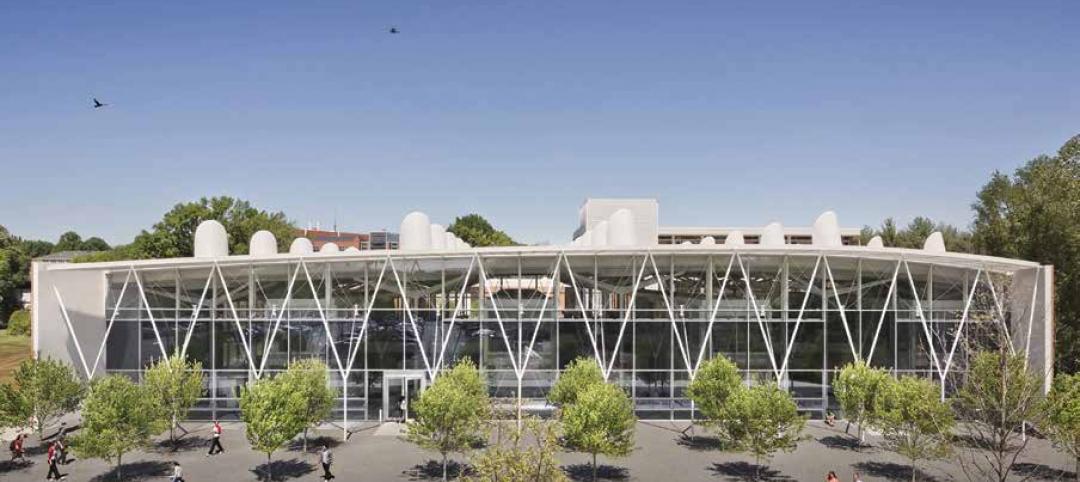Women account for more than half of the U.S. population. But even with significant gains over the past 25 years, their numbers and positions among the ranks of practicing architects appear to have stalled.
The reasons could be a combination of too few role models, mentors, and advancement opportunities, based to a statistical analysis of women’s progress in this field by the Association of Collegiate Schools of Architecture (ACSA).
Looking at recent data from a wide range of sources—including the Bureau of Labor Statistics, AIA, National Architectural Accrediting Board, the National Center for Education Statistics, and the National Council for Architectural Registration Boards—the association found that while the number of female architectural students and graduates has stabilized at around 40%, the number of women working in architect roles has also stopped increasing, and hasn’t gone much higher than 25%.
Indeed, AIA’s Foresight Report indicated that, in 2011 (the latest year for which data were available), only 30% of its women members were associates in their firms, and only 17% were principals or partners. In fact, just 15% of AIA’s licensed members were women that year. And a mere 13% of Intern Development Program supervisors, who review the work of intern architects submitting IDP hours, were female.
“Even with a sizable margin of error it is clear that there are far fewer women in practice than in school,” said Lian Chikako Chang, ACSA’s Director of Research and Information, who authored this report.
The reasons why this “leaky pipeline” persists, however, are less clear.
While Chang doesn’t state this outright, the perception of women architects as second-class citizens might have its roots in academia, where only around one quarter of lecturers, directors, heads and chairs of U.S. architectural schools are female, and only 19% of deans.
It could also be argued that women are leaving the profession at higher rates than men because they are discouraged by the lack of industry recognition their work receives. Only 5% of all TOPAZ Medallion recipients have been women, and about the same percentage of Pritzker Prize winners. Since 1907, only one of the 69 AIA Gold Medals has been awarded to a woman, and that was posthumously in 2014.
“With the share of awards going to women increasing by about 5% each decade, if we continue at this pace we’ll be waiting until 2080 to see a 50-50 split,” Chang notes sardonically.
While the author offered no specific prescriptions, Chang asserted that a more systematic approach to professional development will be required in order to encourage and support women in progressing and achieving as architects at rates more equal to those of men.
“The data reviewed here suggest that we should focus particularly on two areas: first, what happens before applying to and enrolling in architecture school; and second, what happens at higher levels in the profession, academia, and related practices,” she said.
Related Stories
Healthcare Facilities | Sep 1, 2017
Caring for caregivers
Many healthcare organizations are increasingly focused on designing amenities, policies, and workplaces to better support their clinicians, health providers, and administrators.
Architects | Aug 31, 2017
How Instagram is changing the design industry
The digital and physical worlds are colliding. How will social media platforms influence the way we design spaces?
Mixed-Use | Aug 30, 2017
A 50-acre waterfront redevelopment gets under way in Tampa
Nine architects, three interior designers, and nine contractors are involved in this $3 billion project.
AEC Tech | Aug 25, 2017
Software cornucopia: Jacksonville Jaguars’ new practice facility showcases the power of computational design
The project team employed Revit, Rhino, Grasshopper, Kangaroo, and a host of other software applications to design and build this uber-complex sports and entertainment facility.
Multifamily Housing | Aug 24, 2017
Storage units, lounges most popular indoor and outdoor amenities in multifamily developments
Tenants and condo owners crave extra space for their stuff. Most developers are happy to oblige.
Green | Aug 24, 2017
Business case for WELL still developing after first generation office fitouts completed
The costs ranged from 50 cents to $4 per sf, according to a ULI report.
Healthcare Facilities | Aug 24, 2017
7 design elements for creating timeless pediatric health environments
A recently published report by Shepley Bulfinch presents pediatric healthcare environments as “incubators for hospital design innovation.”
BD+C University Course | Aug 23, 2017
AIA course: New steel systems add strength and beauty
Advances in R&D are fostering new forms of structural and aesthetic steel.
Market Data | Aug 23, 2017
Architecture Billings Index growth moderates
“The July figures show the continuation of healthy trends in the construction sector of our economy,” said AIA Chief Economist, Kermit Baker.
Architects | Aug 21, 2017
AIA: Architectural salaries exceed gains in the broader economy
AIA’s latest compensation report finds average compensation for staff positions up 2.8% from early 2015.

















